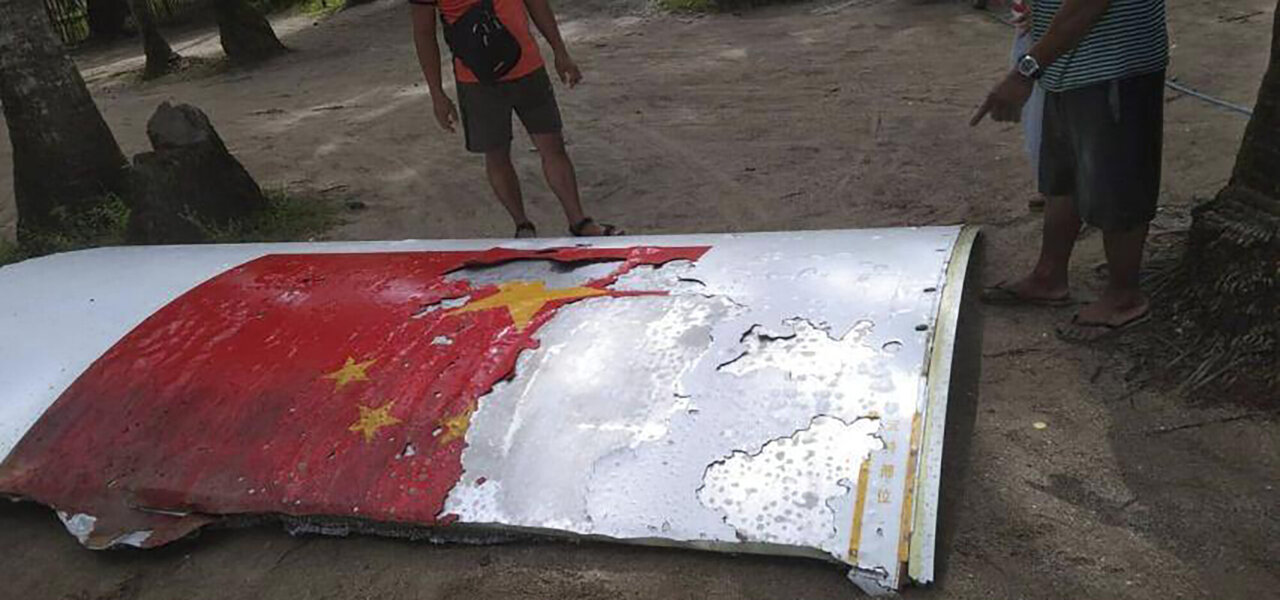The Philippine Space Agency’s warning over China’s rocket debris problem has brought a spotlight on China’s space programme yet again. The Philippine Space Agency has warned public against retrieving possible toxic remnants stating that it is monitoring unburned debris that may have fallen approximately 398 kilometers from Bajo de Masinloc during the launch of the Long March 4C rocket into space on Friday afternoon, March 31.
In a statement, the space agency said that the rocket was launched from Jiuquan Space Launch Center in the Gobi Desert, Inner Mongolia and debris that was discarded before it entered outer space was projected to have landed in the mentioned area. PhilSA also warned the public to avoid retrieving debris that “may contain remnants of toxic substances such as rocket fuel.”
This is not the first time when China has come under attack from Philippines space agency which has accused the former of being irresponsible for not taking adequate measures on debris issue. The United States and several other counties too have criticized China for its rocket debris return events.
In July 2022, a Chinese rocket booster that helped launch part of a space station into orbit plummeted to Earth over Southeast Asia. US Space Command officials had confirmed that the 25-ton debris had re-entered over the Indian Ocean. Some people in Malaysia had reported seeing bright objects in the sky that resembled meteors but said it was likely debris.
Experts at Aerospace Corporation which had closely tracked the booster, believed that the vast majority of the rocket had burned up in the atmosphere. They said it was possible that as much as 20 to 40 percent of the object could have remained intact until it reached the ground.NASA Administrator Bill Nelson blasted China over the country’s lack of transparency over the potentially catastrophic event, according to NYpost.com.
Nelson had accused China of not sharing specific trajectory information as their Long March 5B rocket fell back to Earth. Nelson suggested that all spacefaring nations should follow established best practices, and do their part to share this type of information in advance to allow reliable predictions of potential debris impact risk, especially for heavy-lift vehicles, like the Long March 5B, which carry a significant risk of loss of life and property. Doing so is critical to the responsible use of space and to ensure the safety of people here on Earth.
In fact, rocket debris issue by China has always added tension to the diplomatic relations between Philippines and China. In November, Philippines which had suspected debris from a Chinese rocket launch, had been found at sea off two provinces and demanded ratification of two U.N. treaties that allow people to seek compensation for damage or injury from space launches.
The rocket carried a module with laboratory materials for a space research station being built by China. The rocket parts were found near seawaters where the Philippine Space Agency had identified the areas and informed the public about the fall of debris in advance. The agency said its experts had examined pictures of the suspected debris, including one that shows what appears to be a part of the Chinese flag.
The space agency stated that the treaty ratifications were a top priority and added it “would like to reiterate its sustained efforts to promote and encourage accountability among nations for objects launched into space.”
Rocket parts that detach before reaching space should by design fall back offshore soon after a launch. While such debris is unlikely to fall on land or inhabited areas in the Philippines, it still poses a considerable threat to ships, aircraft, fishing boats, and other vessels that will pass through the drop zones, the agency had stated.
Meanwhile, China has maintained that it was ramping up its space activities. News reports suggested that China was finalizing testing of a parachute system to help control falling rocket debris downrange. Falling rocket boosters from Chinese orbital launches from inland launch centers have caused issues in recent years as the country ramps up its space activities.
The China Aerospace Science and Technology Corporation (CASC), which makes the country’s Long March rockets, is close to finalizing the design of parachutes and related subsystems to bring rocket boosters down much more accurately. The development is designed to minimize the risk of injury and damage downrange from China’s inland launch sites and lower the cost of launches by reducing the need to implement precautions such as evacuating inhabited areas ahead of launches.

Leave a Reply